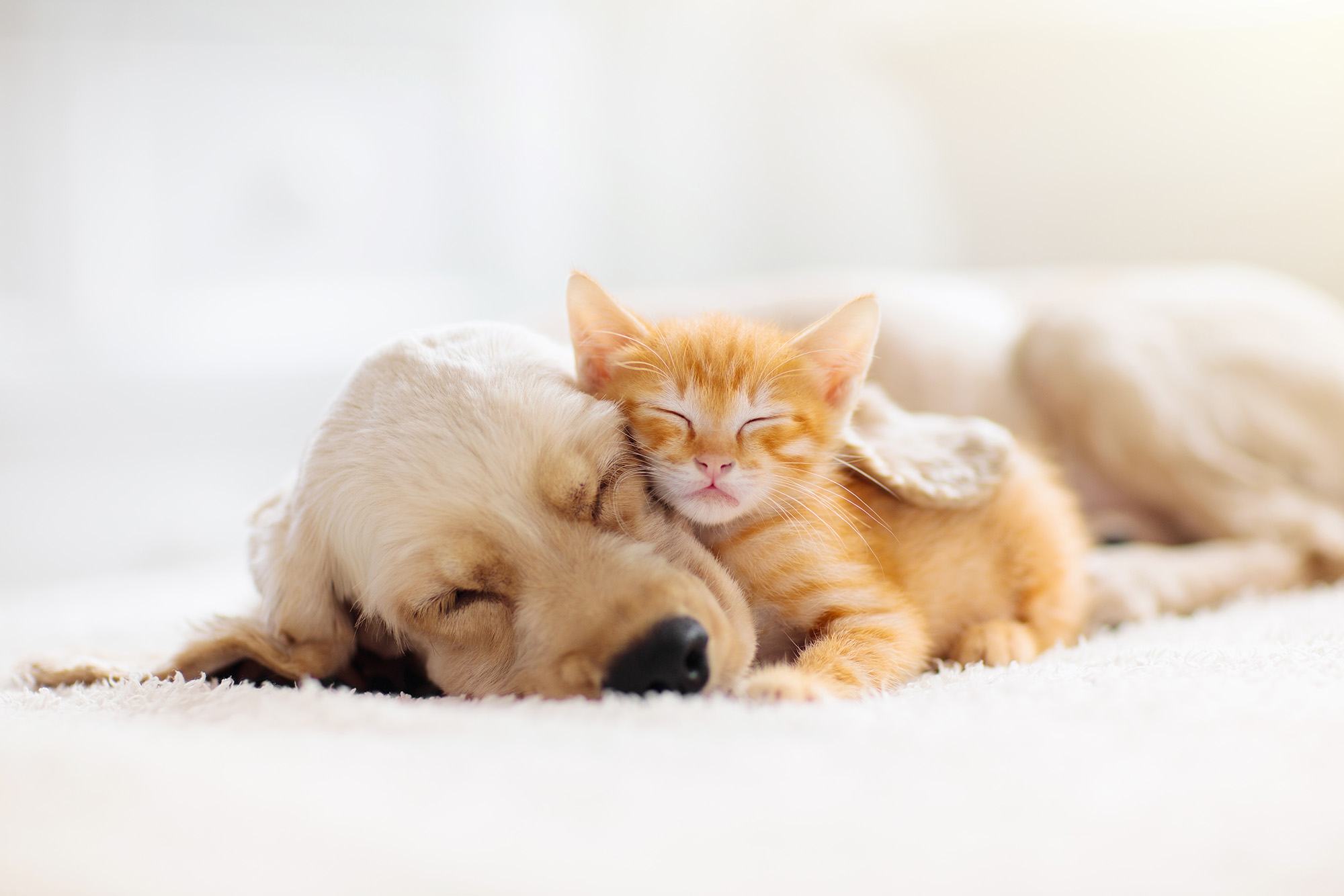Thinking about getting a new puppy or kitten? It’s a big decision, and you want to make sure you get it right! So take a look at our list of pointers for preparation you need to make…
Is a Puppy or Kitten Right for Me?
Before even bringing a fluffy new pet home, it’s important to consider whether having a new pet would suit your life? Having a pet is a decades-long commitment. They will need food, water, shelter, enrichment, veterinary care (often more in older age) and more throughout their life. A pet can cost thousands of pounds a year even for the cheapest, and that’s excluding extra costs for accidents or emergencies. Think properly about whether you can provide all this for your pet.
If you are certain a pet is right for you, now consider what sort of pet
Are you looking for a bouncy family dog or a cuddly lap kitten? Do you need a working dog or one for sports? Can you manage a big strong dog, or would a smaller breed suit best? Do you want pedigree and purebred, or prefer a crossbred dog? Are you happy with a standard domestic cat, or would you prefer the challenge of an exotic breed? There’s a lot of options so please do your research into the animal, breed, husbandry, health conditions and temperament that you have chosen.
Where Do Puppies and Kittens Come From?
Puppies and kittens don’t grow on trees!
If you’re in the market for a kitten or puppy, we always advise visiting a local charity or rescue centre first
Animal charities are currently oversubscribed with thousands of lovely pets looking for a new home. Looking in shelters means you might not find what you were originally looking for, but you might be surprised who you find waiting for you. For a very small adoption fee, you can find a new friend, rescue a lost animal and help charities provide for other neglected pets.
The other common option for puppies or kittens is from a breeder
‘Breeders’ range anywhere from someone selling the litter of an accidental pregnancy, right up to commercial breeders who breed for a living. Again, it is really important to do your research first. Unfortunately, there are lots of dodgy or even illegal breeding practices out there. Ensure that your breeder has credentials (and ideally registered with their local council) and is legitimate. Good breeders will be patient and will be researching you just as much as you are them! Take your time to get to know the breeder, the mum, ideally the dad, and the litter. You should be able to go see the puppies or kittens in their home environment before purchasing.
Ensure the environment is clean, safe, and the puppies or kittens are well-cared for and looked after by mum. Never hand over money before seeing the animals first, and don’t arrange to meet in a public place away from the animal’s home environment. Puppies cannot legally leave their mum before 8 weeks of age and should be microchipped by this age too. We advise kittens should stay with their mum until they are roughly this age too.
You can also get pets from online sites like Facebook or Gumtree, paper advertisements, or family and friends
These options are harder to police and more likely to involve bad breeding practices. Unless you are confident the breeders are legitimate, or you know them well, be cautious about these methods. Some also like to adopt pets from abroad, commonly from Eastern Europe. We would advise against this, as it costs a lot to import a pet from abroad, some carry dangerous and life-threatening infectious diseases such as Leishmania, and many have behavioural issues. There are plenty of pets within the UK in need of a good home – if you are concerned about animal welfare abroad, we advise supporting a local charity financially so that standards can be improved for all animals in that country, rather than for one individual.
Preparing for the New Arrival
The day when your new puppy or kitten is coming home is close. What should you be doing now? First ensure your house is prepared. This means providing a warm, quiet, cosy, danger-free environment they can settle in. A spare room is usually a good starting point. Remove anything electric or hazardous they might chew. Many new pets will be nervous, so having blankets and bedding to hide in is sensible. Make sure you have all their bedding, toys, food and water prepared in advance too.
If you have very small children, it’s good to talk to them first: explain that this is an exciting time, but we need to be calm around the new pet, so we don’t frighten them. Supervised interactions are best. This applies to other pets in the house too, who should be introduced very slowly, first by scent alone (sharing bedding is a good idea), then visually via a window or stair gate, and then very carefully face to face. Always consider how your current pet will get on with the new arrival – cats in particular are not always a fan of sharing!
It is also sensible to register your new kitten or puppy with us in advance, so you can quickly contact us for advice if needed – and of course, always feel free to get in touch if you need any advice!



